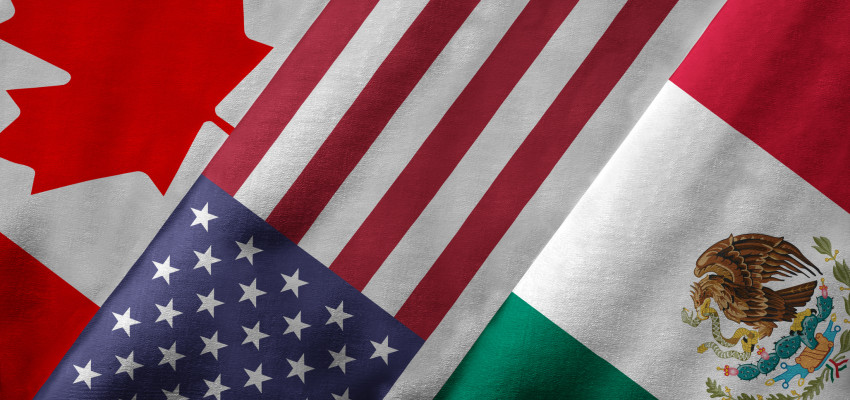By Hannah Becker on June 14, 2018
How NAFTA Affects Farmers and Ranchers

The North American Free Trade Agreement (NAFTA) has been the topic of hot debate since the 2016 presidential election.
We’re in.
We’re out.
We’re renegotiating.
While typically categorized under foreign policy news, the fate of NAFTA will be felt well beyond Washington, D.C. It’s a far-reaching agreement that provides much-needed economic influx to communities all across our nation, including many in Kansas.
The policy project of three United States presidents – Ronald Reagan, George H. Bush and Bill Clinton – NAFTA has encouraged economy-growing trade between Canada, Mexico and the United States since its inception in the 1990s.
NAFTA made history as the largest free trade agreement of its time and has provided economic incentives to all parties involved. Consumers benefit from NAFTA. Economies benefit from NAFTA. Farmers and ranchers benefit from NAFTA. And now, decades of NAFTA-originating benefits are at risk of being dismantled.
Here’s how losing NAFTA would affect farmers and ranchers and the communities that depend on them:
Increased tariffs on U.S. exports
Withdrawing from NAFTA – an action current administration has repeatedly threatened should renegotiations of the agreement not go their way – would mean a massive hike in tariffs on U.S.-grown agriculture products.
Tariffs are like an additional tax – money that must be paid on top of the purchase price. The current NAFTA agreement eliminates the charge of tariffs between its three trade partners – Canada, Mexico and the United States. Without NAFTA, adding tariffs to imports would be fair game, causing an increase in cost of many exports.
How much of an increase in cost are we talking?
Here are a few examples of what tariffs on U.S.-grown agriculture products headed to Mexico could be without NAFTA:
- Chicken and turkey could face an additional tariff of 75 percent.
- Cheese could face a tariff of 45 percent.
- Beef could face a tariff of 25 percent.
- Pork could face a tariff of 10 percent.
For continued economic growth, we want to encourage international trade, as it expands the marketplace for U.S.-grown and manufactured products. Tariffs, however, have the opposite effect – they discourage trade through additional fees.
Decreased export opportunities
According to the United States Department of Agriculture (USDA), exports account for 20 percent of all farm income in the United States. Many of these exported agricultural products are sold in Canada and Mexico – our two NAFTA trade partners.
In 2017 alone, Canada purchased $20.4 billion U.S. agriculture products, and Mexico purchased $18.6 billion. That’s a LOT of exports!
Should the established trade partnerships outlined in NAFTA be dismantled, farmers and ranchers risk losing export opportunities – an essential market for U.S. agriculture products. With decreased exports, comes decreased income – a phenomenon that would cause an economic ripple effect across the United States.
The threat of ceasing NAFTA participation from current administration has made some established trade partners wary of doing business with the United States. Some trade partners have already sought out non-U.S. agricultural import opportunities. In 2017, Mexico increased their Brazilian imports of corn by a staggering 980 percent. Additionally, Mexico’s importation of U.S. soybeans dropped by 29 percent in just one year.
NAFTA and the future of farming
Farmers and ranchers across the United States depend on the international trade opportunities NAFTA provides. Some producers believe a withdrawal from NAFTA could devastate American agriculture.
Given the scope of international trade in the modern economy, any change to NAFTA will be felt across the nation, Kansas included. Hopefully, NAFTA negotiations will keep the policy’s economic effects within our communities in mind.
The future of farming depends on it.


